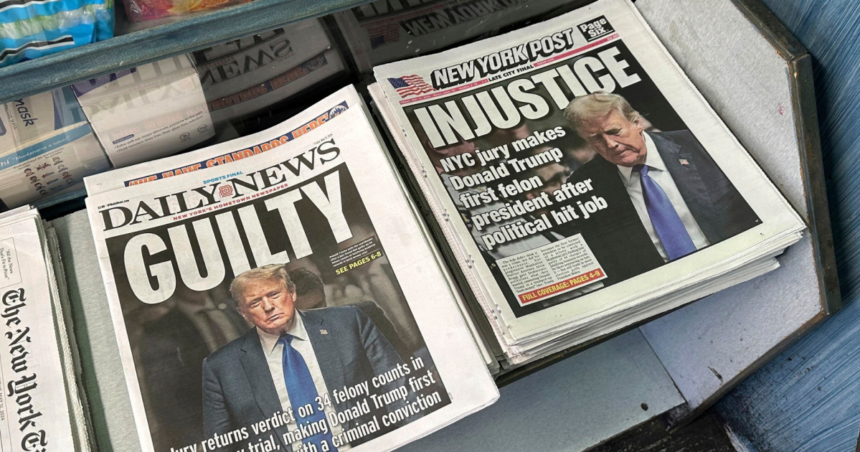After just two days of deliberations, a jury found former President Donald Trump guilty on 34 felony counts of falsifying business records, marking the end to his sensational New York hush money trial. But the case is far from over and could drag on for many more months, or even years.
Here are a few of the biggest questions that remain.
When will Trump be sentenced?
The presiding judge, Juan Merchan, has scheduled a sentencing date for July 11, but what will come first is known as a pre-sentencing report. That’s when a division of the court’s probation department will likely interview Trump and examine his entire background as a citizen before sending a sentencing recommendation to the judge.
Could Trump go to jail?
Though unlikely, yes.
Trump faces up to four years behind bars for all 34 class E felonies — the lowest tier in New York. However, when he sits down to be interviewed in the pre-sentencing phase, the court will take into account that Trump has no prior criminal history.
They’ll also note that he’s a former president with lifetime Secret Service protection, making jailing him a logistical headache.
If not jail, then what’s his punishment?
While the sentencing decision is ultimately left up to Merchan, he could end up sentencing Trump to home confinement or probation. He could also order the former president to community service, or impose fines.
What happens if Trump appeals the verdict?
According to legal experts Scripps News spoke with, Trump’s attorneys are expected to have about 30 days after a sentence is handed down to notify the court that they wish to appeal. That will then give them an additional six months to file a legal brief with a New York appellate court explaining on what grounds they wish to appeal.
However, the appeals process in a case like this has the potential to drag on for months, or even years if it makes it to the New York Supreme Court or even the U.S. Supreme Court. With the presidential election just months away, that means Trump could be sitting in the Oval Office if he wins in November.
If he wins, can Trump pardon himself in the hush money case?
No. The 34 counts he was found guilty of committing in the New York hush money case are state crimes, and a president does not have authority to pardon over state charges.
Will Trump even be the GOP nominee now that he’s been found guilty?
The timing of Trump’s sentencing date is particularly interesting because it will come just four days before the Republican National Convention begins on July 15. That’s when Republicans will come together in Milwaukee to choose their party’s presidential nominee — which is likely to be Trump.
The U.S. Constitution also lists just three requirements in order to run for president:
- Be at least 35 years of age
- Be a natural born citizen
- Have lived in the United States for at least 14 years.
Trump meets all three.
Can Trump still vote for himself?
Yes, unless he’s behind bars.
Trump resides in Florida, so he can still vote for himself there in November’s election as long as he stays out of prison in New York state.





